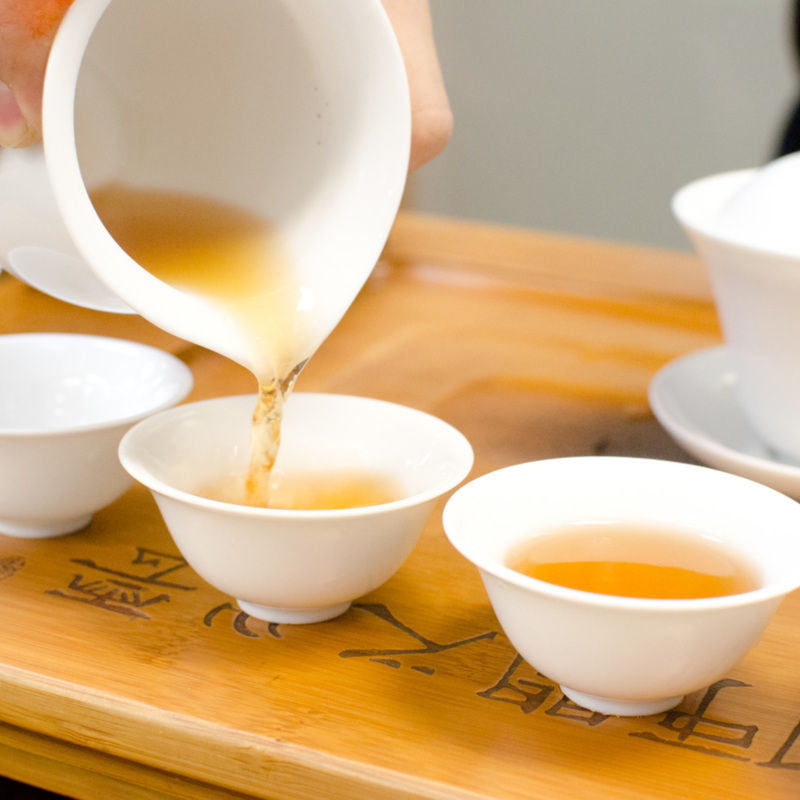Tea Tasting
Dublin Core
Title
Tea Tasting
Subject
Chinese Tea Culture
The art of tea
Tea tasting
The art of tea
Tea tasting
Description
In ancient times, tea-tasting was among the things that distinguished men of refinement from men of poor taste. One who was not good at tasting tea was usually despised. Jia Baoyu, in the Chinese classical novel Dream of the Red Mansion, prided himself in his detachment from worldly concerns and generally regarded common people as base, but because he was ignorant in tea-tasting, he was mocked by Miao Yu (a nun in the book), who considered him "a stupid person" who drank "like a fish."
Tea-tasting consists of four steps: smelling, looking, tasting and relishing. Like meditation, tea-tasting requires an inward-turned mind in a peaceful world. Three prerequisites, formulated in the Song Dynasty, are required for tea-tasting. First, the tea leaves must be fresh, the water must be from a spring, and the tea service must be exquisite. Second, the weather must be ideal, with gentle breezes and a brilliant sun. Third, the participants must be of refined manners and congenial with the host. Stricter demands were imposed on tea-tasting in the Ming Dynasty, when the "Thirteen Appropriatenesses" and "Seven Taboos" evolved.
The number of participants at a tea-tasting should be limited. Chen Jiru, of the Ming Dynasty, believed that one drinking in solitude could best appreciate the divine quality of tea, two drinking together could get the delight of it, three drinking together could only get the flavor of it, and when seven or eight people drank together, tea-tasting would become nothing more than charity tea that quenched thirst. The merit of tea-tasting resides in its aroma, its color, and its taste, which launches the drinker into a new and fantastic world.
Tea-tasting consists of four steps: smelling, looking, tasting and relishing. Like meditation, tea-tasting requires an inward-turned mind in a peaceful world. Three prerequisites, formulated in the Song Dynasty, are required for tea-tasting. First, the tea leaves must be fresh, the water must be from a spring, and the tea service must be exquisite. Second, the weather must be ideal, with gentle breezes and a brilliant sun. Third, the participants must be of refined manners and congenial with the host. Stricter demands were imposed on tea-tasting in the Ming Dynasty, when the "Thirteen Appropriatenesses" and "Seven Taboos" evolved.
The number of participants at a tea-tasting should be limited. Chen Jiru, of the Ming Dynasty, believed that one drinking in solitude could best appreciate the divine quality of tea, two drinking together could get the delight of it, three drinking together could only get the flavor of it, and when seven or eight people drank together, tea-tasting would become nothing more than charity tea that quenched thirst. The merit of tea-tasting resides in its aroma, its color, and its taste, which launches the drinker into a new and fantastic world.
Type
Art
Coverage
Public
References
Xiousong, L. (1993). Chinese tea culture. The Journal of Popular Culture, 27(2), 75-90.
Embed
Copy the code below into your web page
Item Relations
This item has no relations.
IIIF Manifest
- Date Added
- December 2, 2018
- Collection
- Chinese Tea Culture
- Citation
- “Tea Tasting,” CCCH9051 Group 44, accessed January 5, 2026, https://learning.hku.hk/ccch9051/group-44/items/show/24.
